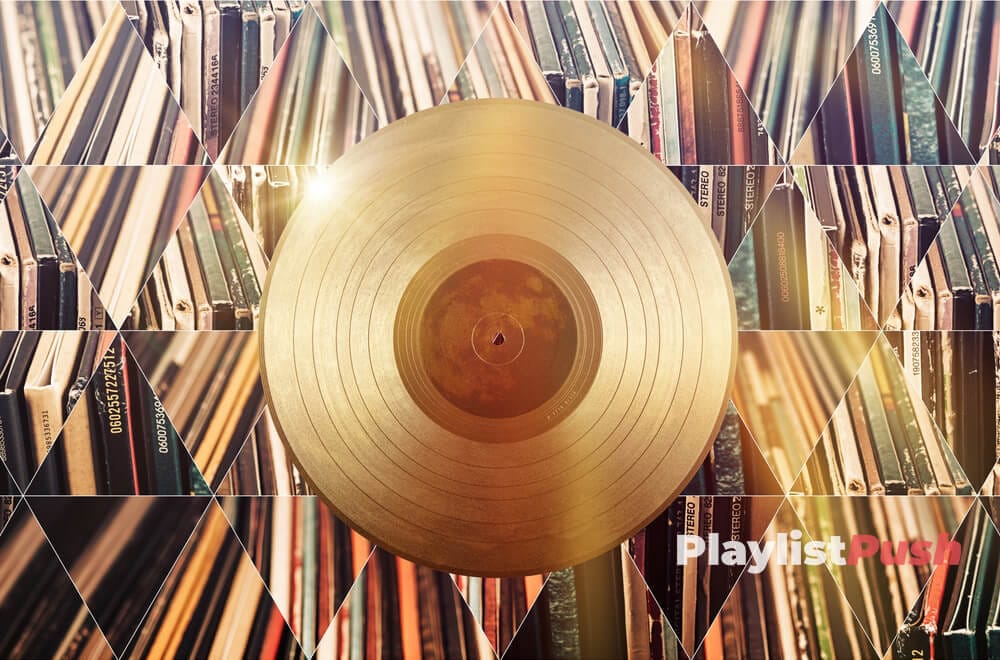Now Reading: How Many Streams Do You Need to Go Gold or Platinum? RIAA Certification Guide for Indie Artists.
-
01
How Many Streams Do You Need to Go Gold or Platinum? RIAA Certification Guide for Indie Artists.
How Many Streams Do You Need to Go Gold or Platinum? RIAA Certification Guide for Indie Artists.

Have you ever dreamed of putting a platinum or gold plaque on your wall?
While the old music industry revolved around physical sales that heavily favored major labels, today’s streaming-driven certification process is creating real opportunities for indie artists to hit these major milestones.
In this post, we’ll explain exactly how many streams it takes to reach RIAA (Recording Industry Association of America) Gold, Platinum, and even Diamond certification—and what that means for independent artists like you.
First, What Is RIAA Certification?
The RIAA awards certifications based on the number of “units” a single or album sells in the U.S.—including a combination of:
- Physical sales
- Digital downloads
- On-demand audio or video streams
Here’s the conversion rate the RIAA uses for streaming:
- 150 streams = 1 unit for singles
- 1,500 streams = 1 unit for albums
So yes, your U.S. streams on Spotify, Apple Music, YouTube, Tidal, Amazon Music, etc. do count toward going Gold or Platinum.
What Doesn’t Count Toward RIAA-Eligible Streams
Here’s what does not count towards going Gold and Platinum:
- International Streams – Only U.S.-based streams are counted toward RIAA certifications.
- User-Generated Content – Streams from fan-made videos, lyric videos, or remixes not officially uploaded by you or your label don’t count.
- Unauthorized Platforms – Streams must come from approved services (like Spotify, Apple Music, YouTube, Amazon Music). Streams from unofficial apps or websites don’t apply.
- Purchased Bots/Stream Farms – Artificial stream manipulation is not only disqualified—it can get you banned from platforms and blacklisted by the RIAA.
- Offline Downloads (Free Tiers) – Streams from downloaded files (like free offline listening) may not count unless reported properly by the platform.
Important: Make sure your music is officially distributed and all music metadata is correct. Improper formatting or uploads can cause your streams to be ignored in reporting.
Singles: Gold, Platinum, and Diamond Stream Requirements
If you’re releasing a single and aiming for certification, here’s the metrics you need to hit:
| Certification | Units Needed | Streams Equivalent |
|---|---|---|
| Gold | 500,000 | 75 million |
| Platinum | 1,000,000 | 150 million |
| Diamond | 10,000,000 | 1.5 billion |
Pro Tip: These streams must come from U.S. listeners and only count if they’re from official audio/video sources (user-generated content like fan uploads doesn’t count).
Related Article: How to Get More Spotify St
Albums: How Many Streams for Certification?
If you’re releasing an EP or full-length album, the numbers are bigger since the RIAA uses the album formula:
| Certification | Units Needed | Streams Equivalent |
|---|---|---|
| Gold | 500,000 | 750 million |
| Platinum | 1,000,000 | 1.5 billion |
| Diamond | 10,000,000 | 15 billion |
This means if fans stream your full album 1,500 times, it counts as one “unit” toward certification.
Related Article: Should You Release a Single, EP, or Album?
What Independent Artists Should Know
- Only streams from the U.S. count toward RIAA certification.
- Only official content counts—not fan uploads or lyric videos.
- You or your distributor must submit your streaming data and apply for certification through the RIAA.
If you’re using a service like DistroKid, TuneCore, or CD Baby, check whether they support RIAA submissions—or if you’ll need to submit manually.
Do You Still Get Gold & Platinum Plaques?
Yes—RIAA still sends out physical Gold, Platinum, and Diamond plaques to artists and their teams after certification is approved. These iconic plaques are custom-made and can be ordered once the certification is officially granted.
When do you receive a plaque?
Plaques aren’t sent automatically. Once your certification is confirmed:
- You (or your label/distributor) can order plaques directly from the RIAA or an approved vendor.
- Most artists receive them a few weeks after certification, depending on production and shipping time.
Pro Tip: Plaques can also be ordered for managers, producers, collaborators, and even fans in some cases.
Why It Matters
While 75 million streams might seem huge, more and more independent artists are reaching these numbers thanks to:
- Viral moments on TikTok or Instagram
- Strategic playlist placements
- Long-term fan engagement and catalog streaming
Getting certified by the RIAA isn’t just a vanity milestone—it adds credibility, opens doors for press, and shows the industry (and fans) that your music is making a serious impact.
FAQs – Most Common Questions
How many streams equal 1 RIAA unit?
For singles, 150 on-demand audio or video streams = 1 unit.
For albums, 1,500 streams = 1 unit toward certification.
How many streams for a song to go Gold?
A single needs 75 million U.S. streams to go Gold under RIAA rules (500,000 units × 150 streams per unit).
How many streams for a song to go Platinum?
A single needs 150 million U.S. streams to be RIAA Platinum certified (1,000,000 units × 150 streams per unit).
Do Spotify streams count toward RIAA certification?
Yes—Spotify streams do count, but only if they’re from U.S. listeners and official uploads reported by Spotify to the RIAA.
Do YouTube streams count toward RIAA certifications?
Yes, but only official music video streams from verified artist or label accounts count. Fan-made or lyric videos do not.
Do streams from outside the U.S. count for RIAA awards?
No—only U.S.-based streams count toward RIAA Gold, Platinum, or Diamond certifications.
Can independent artists get RIAA certified?
Yes! Any artist can apply for certification if they meet the criteria. You may need your distributor or label to help submit streaming and sales data.
How do I apply for RIAA certification?
You (or your distributor/label) must submit your streaming and sales data to the RIAA through their certification application page. You’ll need to show proof of unit totals.
Final Thoughts
Streaming has leveled the playing field. While going Gold or Platinum once required massive label backing, today’s indie artists have a real shot at it. If you stay consistent, promote smartly, and build your fanbase over time, your music could be next on the RIAA list.
Looking to Promote Your Music?
Try our Spotify Playlist Pitching and TikTok Music Promotion services.






















